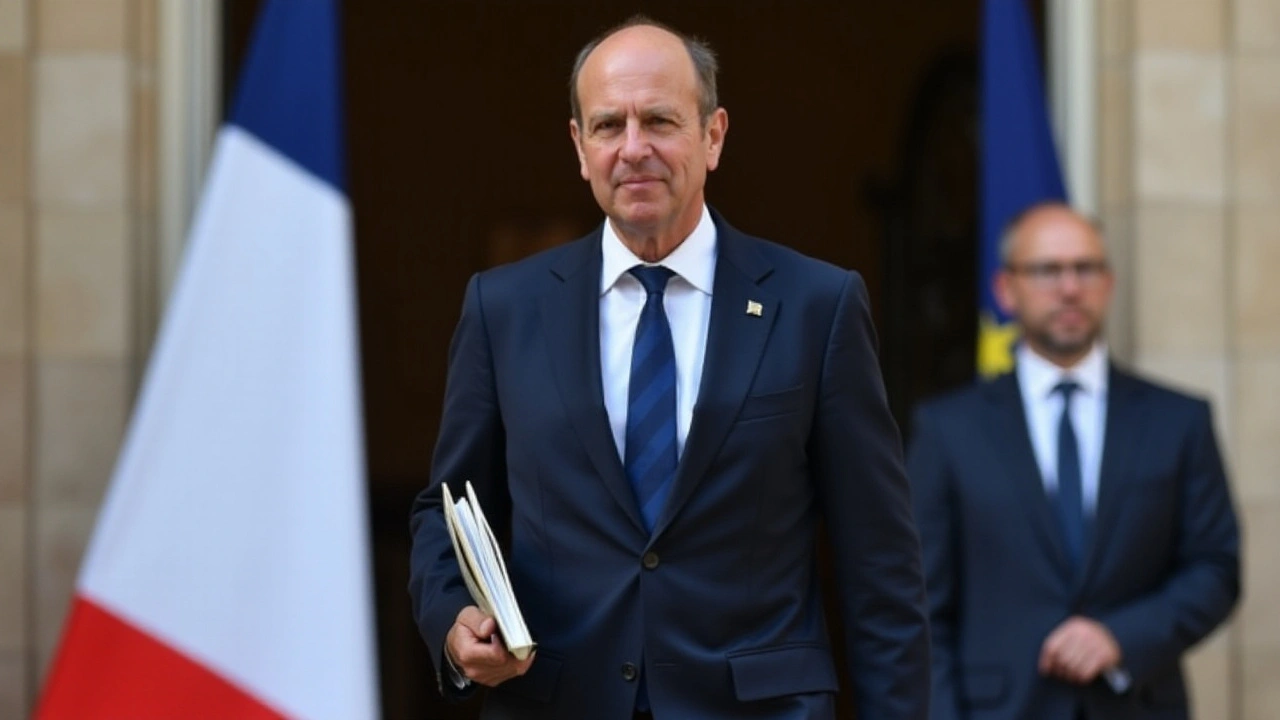
France’s Financial Crossroads: An Introduction to Austerity
France, a nation known for its robust welfare state and extensive public services, now stands at a critical financial juncture. Under the leadership of Prime Minister Michel Barnier, the French government has unraveled a comprehensive austerity budget aimed at reversing the country's deepening fiscal crisis. This plan, stark in its approach, involves both significant cuts to public spending and increased taxation targeting the country's wealthy and affluent businesses. Such measures are part of a broader strategy to stabilize France’s finances, comply with European Union budgetary regulations, and ensure economic sustainability. The severity of these steps underscores the urgency with which France must tackle its economic woes, while the public and political reactions promise a heated debate over the nation’s economic future.
The Crux of France’s Economic Woes
France's financial troubles are not new, but the current state of affairs has become precarious enough to demand immediate and serious intervention. The national deficit climbed to an alarming 6.1% of its economic output, and the public debt has skyrocketed past €3.2 trillion, equating to over 110% of the country’s gross domestic product. When a nation finds itself in such a situation, drastic steps become necessary. These figures not only reflect borrowing that outpaces the nation's production but also a growing concern over the potential economic stagnation if decisive action is not taken. Subsequently, interest payments on the debt are projected to swell, reaching heights that further threaten economic stability. By some estimates, these payments could reach an astonishing €80 billion annually by 2027, effectively crowding out spending in other crucial areas. Clearly, the clock is ticking for France to rectify its fiscal imbalances and mitigate the looming financial crisis that could deepen if left unaddressed.

Austerity Measures: Salaries Stressed, Corporate Giants Targeted
The austerity measures in the new budget includes provisions designed to secure over €20 billion through one-time taxes on higher earners. This fiscal year, it targets individuals or couples without children earning upwards of €500,000 annually. Additionally, more than 400 corporations will face higher tax bills designed to bring in an extra €8 billion. This includes major players in the energy sector, such as Total, which will incur one-time taxes on extraordinary profits exceeding €1 billion. The focus on these sectors highlights a tactical shift in fiscal policy, finding ways to fund public resources without further burdening the economically vulnerable. The administration finds itself walking a tightrope between generating needed revenues and maintaining France's attractiveness to businesses, a balance critical to fostering long-term economic health.
Slashing Spending and its Social Impacts
Despite the introduction of taxes, the crux of the austerity plan rests on deep cuts to public spending. The government aims to find €40 billion in savings, a task that involves scaling back certain social benefits. As part of these efforts, the inflation-adjusted increase in pensions will be postponed until next summer. Additionally, the social security reimbursements for medical appointments will also be reduced. What's more, a substantial €16 billion initiative aimed at helping businesses hire entry-level blue-collar workers will be curtailed. This cut is a significant blow to workforce development ambitions, potentially impacting job creation negatively. With spending in government and local agencies set to face significant contractions, the government has introduced a spending rule akin to fiscal tightening—allowing only €1 of spending for every €2 saved. Such measures have, unsurprisingly, sparked fears over public sector workforce reductions and the potential for widespread layoffs, notwithstanding the exemption of military expenditures from these cuts.

Navigating Public Criticism and Economic Concerns
The unveiling of this budget has not occurred in isolation; it has ignited a wave of criticism from various sections of society. Critics argue that placing a heavier tax burden on corporations signifies a departure from President Emmanuel Macron's market-friendly policies that were centered around stimulating business growth. French finance officials counter such criticisms by emphasizing the government’s past support for businesses, citing nearly €100 billion spent to help them during the recent energy crisis. Regardless, the controversy reflects a tension between budgetary discipline and economic growth. Concerns have also been highlighted by financial oversight authorities, who warn of the budget's potential drag on economic growth for the coming year, already forecast at a modest 1.1%. These warnings point towards the broader challenge of instating fiscal responsibility without plunging the nation back into recessionary abyss.
The Future of France’s Economic Landscape
France's austerity budget symbolizes a crucial moment in its economic history. At the heart of this move is a confrontation with a sovereignty issue—it is a decisive push for a future where budgetary stability is synchronized with European Union expectations. However, the journey forward remains fraught with challenges. Whether these austerity measures will steer France towards a sustainable financial state or prove detrimental to its socio-economic fabric remains a fundamental question. Furthermore, the measure’s success will largely depend on the French government’s ability to communicate its necessity and garner public support in the face of potential hardship. In a broader sense, France’s strategy could serve as a bellwether for how other European nations grapple with similar fiscal pressures, setting a precedent in fiscal management during times of crisis. This budget, therefore, embodies both the burden of current expectations and the promise of a more stable economic future for one of Europe’s largest economies.





